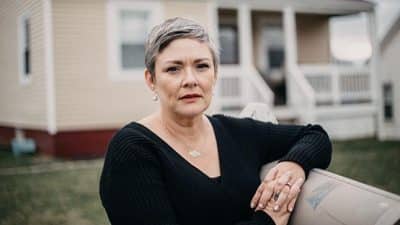
The House voted Monday to pass the Global Health Security Act, legislation that emphasizes the United States’ commitment to promoting global health, safety and security.
The bipartisan legislation offered by Congressman Gerry Connolly (D-VA) and Congressman Steve Chabot (R-OH) previously passed the House in September.
The Global Health Security Act has sought to address two main issues – that U.S. global health security staffing and activities are largely reliant on an executive order and not specifically supported in law, and that the U.S. needs a permanent designated official responsible for coordinating the interagency response to a global health security emergency.
These issues are particularly urgent considering the threat posed by the rapid spread of COVID-19 across the globe.
“The House has taken an important step in once again passing the Global Health Security Act. Saving lives from the next global pandemic starts with investing in preparedness before it strikes, “Connolly said. “I thank my friend, Mr. Chabot, for his steadfast leadership on this issue. The global COVID-19 pandemic has underscored not only the need for a robust federal response to such a crisis, but also the importance of investing in global health security and pandemic preparedness around the world because diseases do not stop at borders.”
“House passage of the Global Health Security Act today is a critical step toward ensuring that the next disease outbreak does not become a global pandemic like COVID-19.” Chabot said. “Diseases do not know borders, and the suffering and economic pain brought by COVID-19 has shown us that an outbreak on the other side of the globe can directly impact us here at home. That is why, I am pleased to work on this important, bipartisan legislation with Congressman Connolly to enhance our pandemic preparedness and response, and that of the whole world, for years to come.”
The Global Health Security Act aims to:
- Establish a Global Health Security Agenda Interagency Review Council overseen by the National Security Advisor and whose membership includes the heads of agencies relevant to carrying out the Global Health Security Agenda.
- Establish a United States Coordinator for Global Health Security responsible for coordinating the interagency response to a global health security emergency.
- Require the President to develop a global health security strategy with specific and measurable goals, benchmarks, and performance metrics that will improve U.S. leadership on global pandemic preparedness.
- Establish an international Fund for Global Health Security and Pandemic Preparedness
Republican and Democratic presidents alike have recognized the critical importance of global health security – from President Obama’s role in launching the Global Health Security Agenda to President Trump’s National Security Strategy and National Biodefense Strategy.
This bill is consistent with lessons learned incorporated into the Biden administration’s National Security Memorandum on United States Global Leadership to Strengthen the International COVID-19 Response and to Advance Global Health Security and Biological Preparedness as well as President Biden’s Executive Order on Organizing and Mobilizing the United States Government to Provide a Unified and Effective Response to Combat COVID-19 and to Provide United States Leadership on Global Health and Security.
The Global Health Security Act enhances U.S. investments in their ability to prepare for and respond to public health threats as well as reduce or prevent their spread across borders.
The Global Health Security Act is endorsed by ChildFund International, Global Citizen, Global Health Council, International Medical Corps, IntraHealth International, Johns Hopkins Center for Health Security, Nuclear Threat Initiative, PATH, the American Society of the Tropical Medicine and Hygiene, and Management Sciences for Health, the ONE Campaign, The Borgen Project, the Sabin Vaccine Institute, and the American Society for Microbiology.










